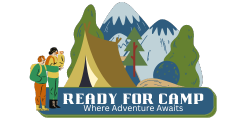
In a world drowning in noise, notifications, and never-ending obligations, stress is no longer a visitor—it’s become a permanent resident. While therapy, medication, and meditation are commonly recommended remedies, there’s one powerful, transformative solution that is often overlooked: Adventure Travel.
What if escaping your routine isn’t running away—but finally coming home to yourself?
Adventure travel isn’t just about trekking through forests or scaling mountains; it’s about breaking free from the emotional cages built by deadlines, pressure, and the monotony of urban life. It’s about testing your limits, rediscovering purpose, and giving your mind the space it desperately craves.
The Emotional Science Behind Adventure and Healing
Stress doesn’t just exist in our heads—it manifests in our bodies. Fatigue, anxiety, irritability, low immunity, poor sleep—these are all signs that your system is overwhelmed. But here’s the truth: Nature heals. Movement heals. Discovery heals.
When you go on an adventure—be it kayaking in Borneo, hiking in Patagonia, or even camping in the Malaysian highlands—your brain releases dopamine and serotonin, natural mood lifters. You enter what scientists call a “flow state”—a mental zone where you are fully present. This is the exact opposite of anxiety, which lives in the future or past.
You stop overthinking. You stop worrying. You simply live.
Adventure Travel Builds Emotional Resilience
In the wild, there is no GPS to dictate your life. You learn to rely on your instincts, make decisions on the fly, and trust your gut. Each step outside your comfort zone becomes a lesson in courage.
This isn’t just a thrill—it’s therapy through empowerment. You return not just rested, but stronger, braver, and more capable. You start to see your problems from a new altitude—literally and figuratively.
You stop being a victim of stress and start becoming the author of your strength.
Realign Your Priorities: Reconnect with What Truly Matters
When was the last time you watched a sunrise without reaching for your phone? When was the last time you laughed from the belly, not from a text?
Adventure travel strips you of distraction and reconnects you with the most authentic version of yourself. You form deep human connections with fellow travelers. You find joy in simplicity. You learn that happiness isn’t in things, but in moments.
This is the therapy that doesn’t come in a bottle—but in the breeze across a cliffside, in the adrenaline of crossing a rushing river, in the silence of a starlit desert.
Make It Urgent: The Cost of Not Escaping
Here’s the truth most people ignore until it’s too late:
-
Chronic stress shrinks your brain and damages memory.
-
Burnout kills productivity and passion.
-
Emotional fatigue destroys relationships.
-
Your health declines quietly, steadily, and often irreversibly.
Can you really afford not to pause and recalibrate?
What are you waiting for? A breakdown? A diagnosis? A wake-up call that comes too late?
This is your sign. It’s time to choose you.
How to Start Your Healing Journey Through Adventure
-
Start small: You don’t need to fly across the world. Begin with a weekend hike or a solo drive through nature.
-
Disconnect to reconnect: Leave behind social media and emails. Let your mind breathe.
-
Travel with intention: Don’t just travel to escape. Travel to transform.
-
Choose local experiences: Support eco-tourism and connect deeply with cultures.
-
Keep a journal: Reflect on your emotions, fears, and breakthroughs during your trip.
Your Life is Meant to Be Lived—Not Just Survived
Adventure is not a luxury. It is a necessity.
If you’re overwhelmed, overworked, or simply over everything—pack your bags, and pack your courage.
Because the greatest healing often comes not from therapy rooms, but from mountaintops, riverbanks, and the roads less traveled.
